Gun Parts & Mods
Silencer vs Suppressor: Are They The Same?
Published
1 year agoon
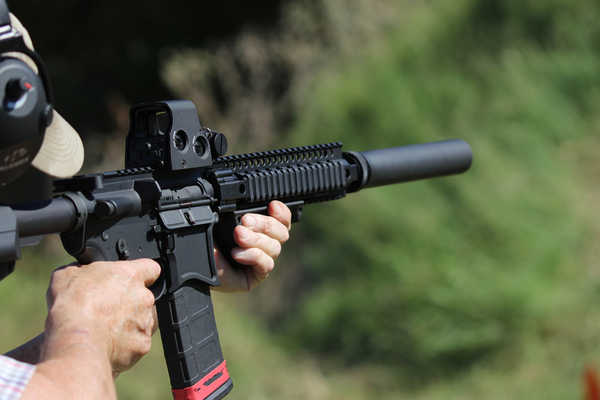
In the gun world, there are two terms that are often used interchangeably – silencer and suppressor. Those who don't know will think they're different things, but they're not. Learn more about the explanation behind silencer vs suppressor below!
Silencer vs Suppressor | Is There A Winner?
Should You Get a Suppressor Or Silencer For Your Firearm?
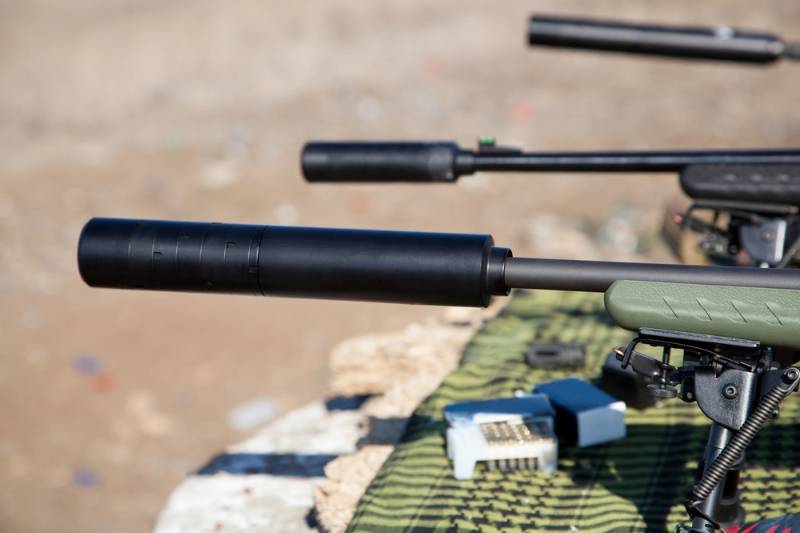
You can find all kinds of attachments and accessories for your favorite firearms. Some of the most popular are suppressors and silencers.
But many folks express some confusion when it seems that products called either term seemed to do the same thing.
Is there a real difference between suppressors and silencers? Not really. In fact, they’re functionally identical. But let’s break down why you hear two terms instead of one.
They're the Same Thing
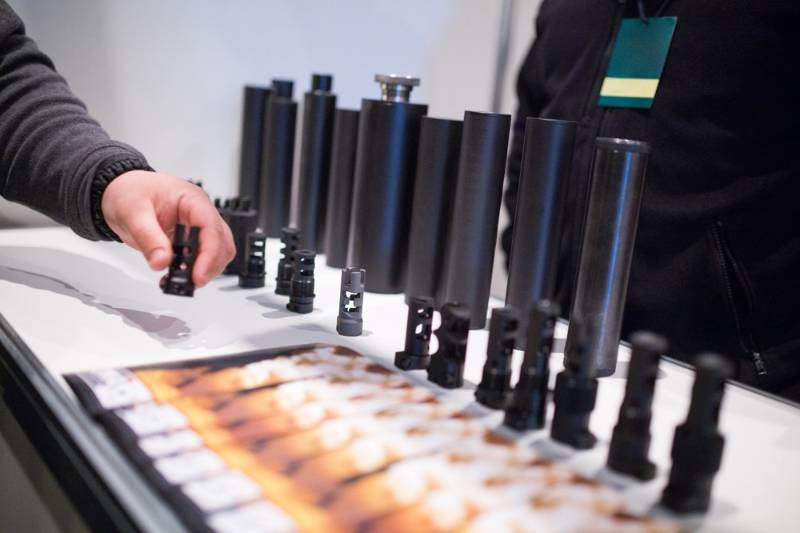
The confusion began decades ago when Hiram Percy Maxim (the inventor of the suppressor) called it the “Maxim Silencer” because he thought it would be a more marketable term and excite his customer base.
Indeed, the “silencer” caught on both with firearm enthusiasts and Hollywood action movies.
The name silencer partly led to the public misunderstanding of the function of the attachment.
Even today, lots of people think that silencers can magically make a gun go completely silent whenever it fires a round.
In truth, any experienced firearm user will tell you that silencers aren't truly silent.
In fact, no gun can ever escape making some noise when firing a projectile.
This eventually led to a more technical definition of the barrel-mounted attachment: the suppressor.
A suppressor is the exact same type of invention as the classic silencer in that it lowers the amount of noise a gun makes when firing a round.
But it’s a more technically correct name for the attachment since it only suppresses the sound instead of totally silencing it.
RELATED: How Do Suppressors Work?
Legal Definitions
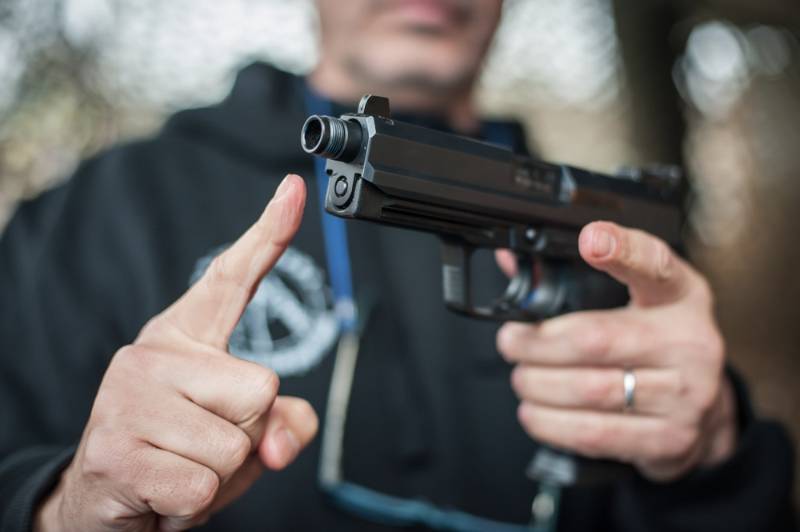
Although suppressor is the more technically correct name for these common attachments, silencer had already caught on as a term when gun laws were being updated to reflect government decisions about the attachments.
That’s why you can find the term “silencer” in state and federal gun regulations across the country, plus on ATF forms you may need to fill out.
Still, don’t think that the government doesn’t understand that a suppressor does the same thing as a silencer.
You’ll still need to register any attachment with the word “suppressor” on the box.
Types of Suppressors
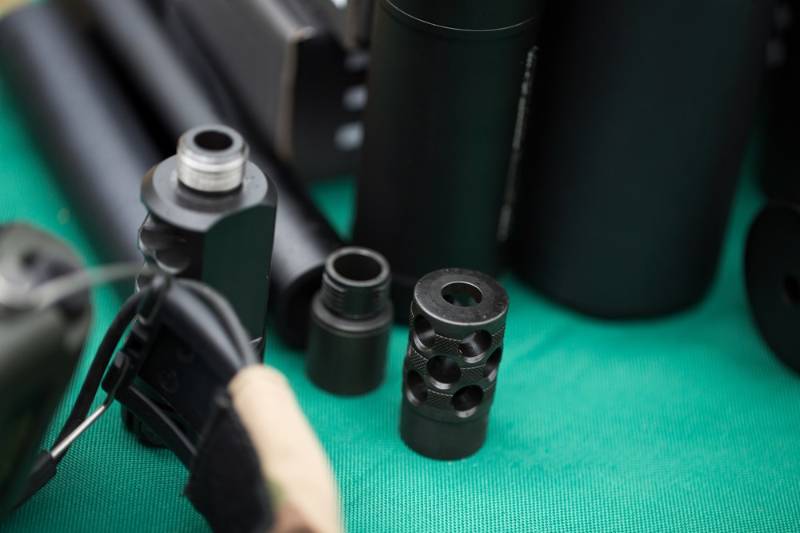
Things are a little more complicated when you consider the attachments called “flash suppressors.”
These are now also called flash hiders, but flash suppressors are still on the market and do exactly what you would expect — they suppress the flash from a firearm.
This does mean that a suppressor is technically any firearm attachment that suppresses one or more reactions from pulling the trigger.
However, everyday use of the term suppressor usually refers to the gunshot-noise-suppressing version instead of the flash hider version.
If you're ever in a conversation and have to discuss both of these attachment types, it might be appropriate to switch to a silencer for the audio-focused attachment so you can use a suppressor for the flash hider, or vice versa.
Silencer vs Suppressor: It's Really Up to You
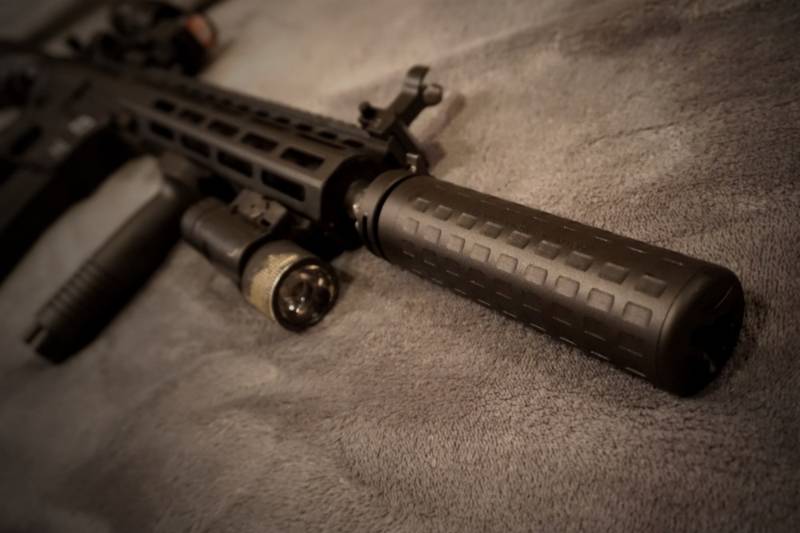
So is there one term or the other that you should or need to use? Not really.
You can use either of the two terms you desire, although you might want to tailor your terminology depending on your crowd.
For instance, many military personnel or true firearm enthusiasts will prefer the term suppressor, since it more accurately reflects the function of the attachment and teams more legitimate in their eyes.
Casual hunters or shooting range visitors will often call the attachments by their Hollywood-style moniker, silencer, to the general derision of their more knowledgeable friends and family.
Watch this video from Baby Face P to hear what a silencer sounds like:
Ultimately, it’s up to you which of the two terms you want to use. Just remember that there’s no difference in functionality, efficiency, or sound suppression between the two.
Which term do you prefer using and why? We'd love to hear from you in the comments section!
**Disclaimer: All content on this site is for informational purposes only. Please read our full disclaimer here.**
Editor’s Note: This post was originally published on July 14, 2020, and has been updated for quality and relevancy.

Staccato P Review | Staccato P 1000 Round – The Most Accurate Duty Pistol

Sawed Off Shotgun | Everything You Need To Know

CZ 75 SP01 Tactical Gun Review | Gun Carrier

PODCAST: Gun Law Changes All Across America Right Now

PODCAST: How to Win Olympic Gold

PODCAST: 50 Important Ideas For Self-Defense, Self-Reliance, and Personal Safety


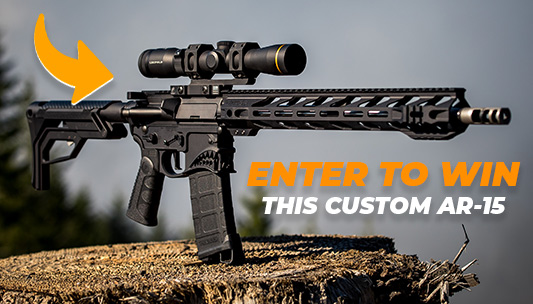
Lydia
January 23, 2021 at 4:24 PM
U dogs keep emailing me
Leave me the hell alone
vmar
January 23, 2021 at 1:55 AM
Body armor is legal in many states. You will need to check on your state. You can order body armor online from many web sites.
vmar
January 23, 2021 at 1:52 AM
Many gun manufacturers do make weapons with threaded barrels. Some offer complete packages with threaded barrels. Unfortunately, suppressing a revolver is inefficient. The expanding gas from the powder burning escapes between the cylinder and the barrel. There have been some revolvers specially made to be suppressed, however at this point I don’t remember who made them. The best weapon candidates are bolt action or single shot that have no automatic moving parts to release the expanding gasses except for the end of the barrel where the suppressor is attached. You will have to check your state laws for legality of suppressors. There are many resources online to check.
Shooter
January 22, 2021 at 8:43 PM
The term “suppressor” is my preference because it more accurately describes the function it performs. I also have the same question as Jerry above. Why don’t handgun manufacturers produce weapons with threaded barrels, or some attachment mechanisms on automatics? I have a Walther PPK, a 5-shot Colt police special revolver, and a Ruger P95 Automatic. How can I go about making the PPK and police special suppressor-ready? I would think that it would require some threading on the barrel to accommodate the ability to screw on the suppressor.
In the case of the automatic, I can only visualize replacing the standard barrel with a longer one with threading on the “business end” hat would stick out farther from the flat, thick nature of the barrel.
I frequently see blogs and other gun communications talking about “easily” making your own suppressors in your garage with standard tools. Those sources are typically hawking DVDs that purport to show the reader/buyer how to do it. Any veracity to those claims?
JERRY
January 22, 2021 at 3:02 PM
I WAS UNDER IMPRESSION THAT SILENCER’S ARE ILLEGAL IN CERTAIN STATE’S. IN CT.THE STATE I AM IN ARE SILENCER’S ILLEGAL? PLUS WHY DO ANY GUN’S I’VE LOOKED AT AT LOCAL GUN SHOP’S NOT THREADED AT THE TIP TO SCREW A SILENCER INTO? I JUST FOUND OUT ONLINE THAT BODY ARMOR TO THE PUBLIC IS ILLEGAL. ONLY POLICE AND MILITARY CAN OWN THEM. THAT ONE I REALLY DON’T UNDERSTAND!